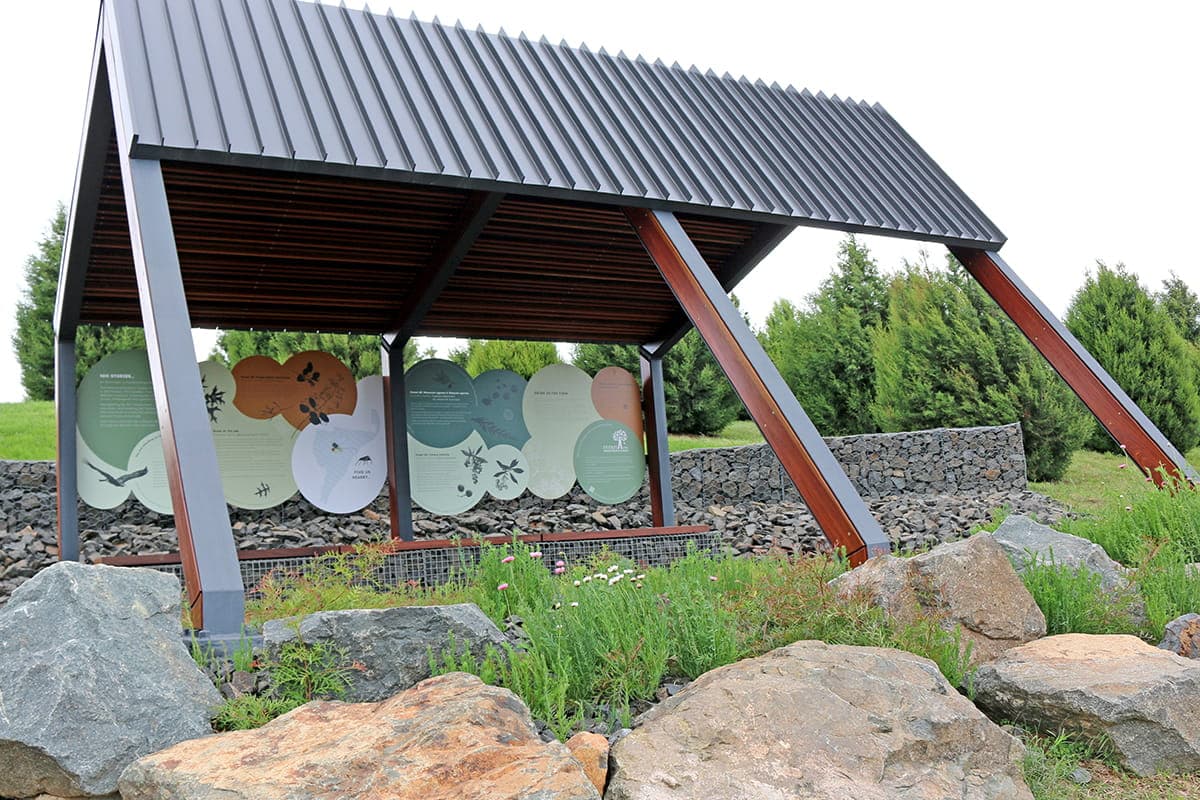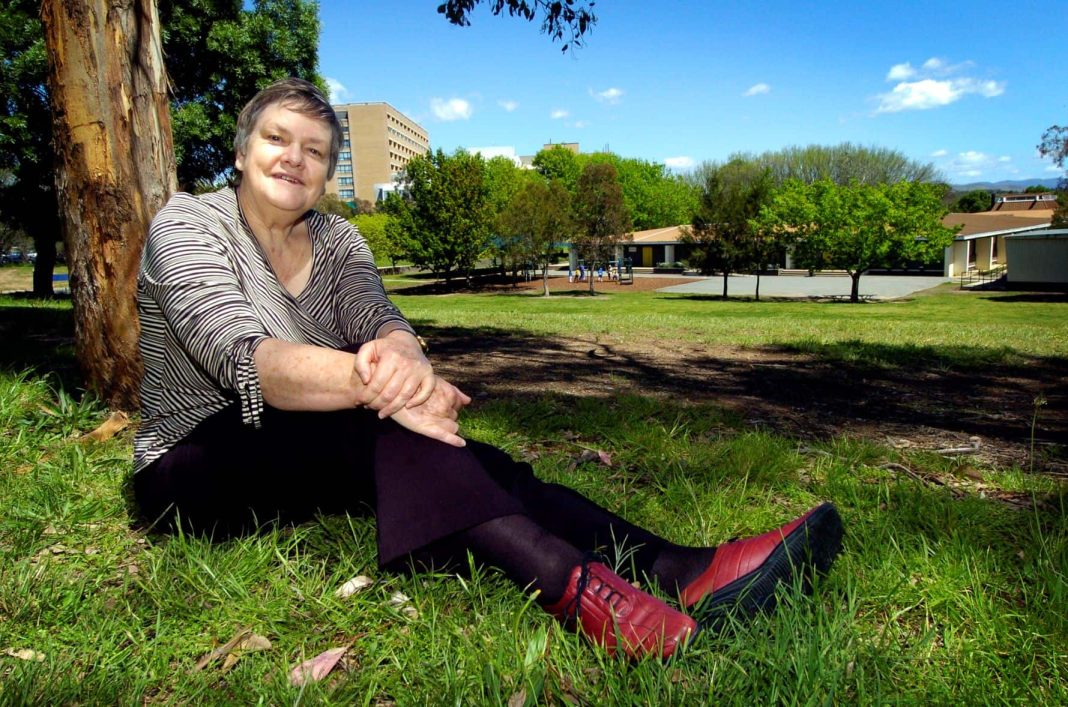The total number of Mr Fluffy asbestos victims in the ACT is unknown, but there are certainly thousands.
It’s a disaster that ACT Minister for Sustainable Building and Construction Rebecca Vassarotti compares to a natural tragedy that filtered through the community and left a lasting impact.
To be reminded of the victims and allow Canberrans to reflect and, in some cases, grieve, a forest shelter is set to be built at the National Arboretum.
Expected to be opened to the public in June 2023, the place of reflection was recommended by the former Mr Fluffy Community and Expert Reference Group to help the ACT heal and be comforting and thought-provoking.
The Group’s former Chair Dr Sue Packer says the underlying message of the shelter is for people to stop and think before they’re “carried away with a new and wonderful idea”.
“The thought of the rocky outcrop there, in your more philosophical or poetical moments, [are] going to be really built into the idea of very rocky difficult journey for many people to reach the solution to a problem…” she says.
Dr Packer believes the site will help fulfill one of the aims of the Group – to make sure a disaster like Mr Fluffy never happens again, if there’s a way to foresee and prevent it.

Personally, the reflection site is important to Dr Packer because she says people have a tendency to “forget”.
Spending her childhood in the Blue Mountains before moving to Canberra, Dr Packer reflected on the bushfires she witnessed and the “many resolutions” she heard, but “then you find them building the wrong sort of houses in the wrong sort of places and totally forgetting that this thing ever happened before”.
“It’s part of our survival. I’m sure that you don’t dwell on past disasters, you have to move forward, but if you don’t learn from those past disasters and have some caution and reflection before you take the next big adventure, you’re going to keep making these devastating decisions which are affecting so many people for the rest of their lives, and so many families as it goes on for the next generations,” she says.
“We have to, by the 21st Century, be a little better about reflecting and remembering and using these decisions to determine what we do next.”
Ms Vassarotti shared Dr Packer’s sentiment and says she believes “there are many, many lessons” to be learned from the Mr Fluffy disaster.
She revealed the initial attempt to remediate some of the properties in the 1980s was “not an adequate response”, which led to the beginning of the housing demolishment’s in 2014.
One of the lessons learned is failing to immediately respond to issues leads to the problem increasing in difficultly and size.
Ms Vassarotti says she understands there’s a range of feelings expressed by the Canberrans affected, and the ACT Government respects those who wish to never hear about it again, but believe it’s important to ensure the lessons are learned.
She says some of the health impacts for residents have been “absolutely devastating” and there are lingering concerns that health impacts will come up in the future. The site is an opportunity for to educate people who might not understand what happened and the impact it had on Canberrans.
Dr Packer says while it is hard to determine the exact number of Canberrans affected by Mr Fluffy asbestos, the Group have done their best to narrow it down with the health survey, and they will continue to try.
“You can’t estimate it. We did our best with the health survey and we’re going to continue the health survey which is another very important legacy because this is such a slow and insidious disease,” she says.
“So, all we know, it’s a sizeable and significant number of people and every death that occurs from this is a preventable death…”
Update on Mr Fluffy homes in Canberra
Ms Vassarotti gave an update on the Canberra homes left with Mr Fluffy asbestos and says there have been over 1000 homes identified needing remediation.
While the vast majority of the homes have already been demolished and remediated, there’s a handful of homes that haven’t.
The ACT Government are working with homeowners to identify how the homes will be finally remedied, Ms Vassarotti says.
“We are also aware though that there might be more homes that are identified, particularly when people are going for renovations so we are ensuring we have capacity to respond and to support households that might find themselves in that situation,” she says.
While there were homes across the country filled with asbestos, the issue remains in Canberra due to a particular product that was highly toxic and dangerous used by a company within the ACT.
Ms Vassarotti says Canberra received “a little bit of bad luck” as this product wasn’t used in the broader community and was more dangerous than general asbestos.
Get all the latest Canberra news, sport, entertainment, lifestyle, competitions and more delivered straight to your inbox with the Canberra Daily Daily Newsletter. Sign up here.



